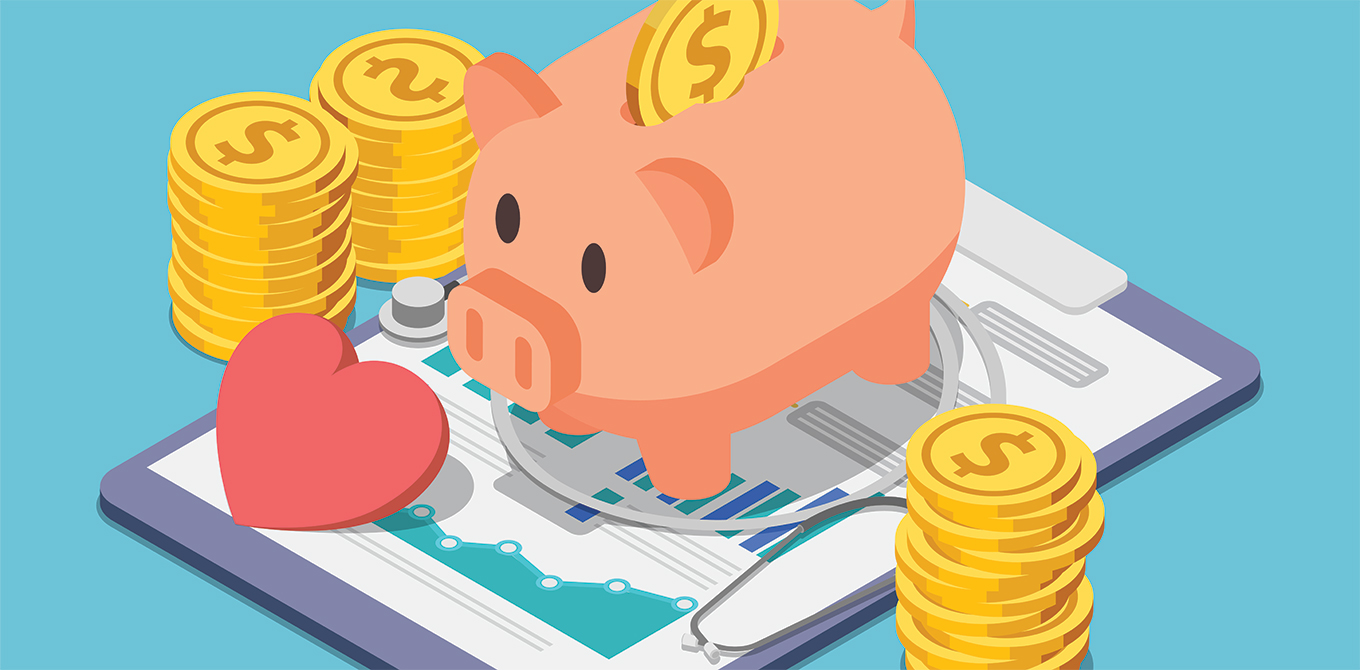4 Steps to manage your finances during a crisis
Whether you’re facing unexpected medical expenses, a job loss, or car repairs, it can be easy to feel overwhelmed, especially when it comes to your finances. Whatever your situation may be, these tips will help streamline your financial planning and manage your budget to help you stay on top of bills, save money, and work toward your financial goals.
1. Start with a financial review
The first step in managing your financial health during a crisis is knowing where you stand and what may need your attention. That means taking a close look at your total financial picture.
Create a financial inventory that includes:
- An up-to-date budget that includes your current income and expenses.
- Current savings totals versus your pre-crisis savings.
- The amount of debt you currently owe.
- A list of past due bills, if any.
- Balances for retirement or investment accounts, if any.
This can give you a starting point for what to prioritize as you work on your finances. Once your regular expenses are paid, an up-to-date budget will tell you how much money you have to apply to debt repayment or savings.
2. Get current on bills
Falling behind on bills isn't ideal, but it can happen in a crisis. If you have bills that are past due, you'll need a plan for catching up.
If you haven't reached out to your lenders and service providers yet, that's the next step. Connect with your landlord or mortgage company about what options you have for bringing your account current. The same goes for past-due utility accounts, student loans, and credit cards. Often during a crisis, companies offer payment programs for people experiencing financial hardships.
Also, consider how your payments may be affected going forward if you took advantage of things like deferment or forbearance periods for student loans, mortgage loans, or car loans. If your loans continued to accrue interest and fees, your payments could end up being higher once you resume making them – you’ll need to tweak your budget accordingly.
3. Rethink debt repayment
If you come out of a financial crisis with debt in tow, you'll need to give some thought to the best ways to pay it off.
Going back to your crisis budget, start by looking at how much money you can earmark toward debt repayment. At the very least, you should have enough money to pay the minimums, but ideally, you can pay more than that.
Next, think about ways to make your debt less expensive and more manageable so you can pay it off faster. For example, you may consider:
- Refinancing private student loans to lower your interest rate and monthly payments.
- Consolidating federal student loans to streamline your payments.
- Transferring high-interest credit card debt to a card with a 0% annual percentage rate.
- Refinancing a home loan or car loan to get a lower rate and payment.
Interest adds up quicker than you think, so reducing interest rates on your credit cards and other debt means more of your payment goes toward the principal each month, therefore helping you pay the debt off faster. Just keep in mind that refinancing or qualifying for a low-interest rate balance transfer hinges largely on your credit scores.
You can also take another look at your budget to see what expenses, if any, you could reduce or eliminate to free up more money for debt repayment. This includes streaming services, paid apps, gym memberships, and subscriptions.
4. Make a savings plan
Once you've got your budget in order and debt repayment plan in place, rebuilding, or establishing savings is next on the list. It may seem impossible to save in the middle of a crisis, so if you’re not in a place financially where you’re ready to save, begin to plan for it. Many people have adjusted their habits during the pandemic; less shopping, eating out, and entertainment. Look at what lifestyle changes you can continue post-crisis that would help to build your savings.
If you had an emergency fund going that you drained, make your goal to get it back to pre-crisis levels. At the same time, consider whether you may want to bump up your rainy day fund in case of future emergencies. For example, if you had three months' worth of expenses or income saved, you may want to stretch that to six or nine months' worth instead.
Once you have a fixed dollar amount you need to save, break that down and decide how much you'll save each payday. Then automate your deposits to savings so your money can grow with as little hassle as possible. Most likely it will take some time, especially as effects of the crisis continue so just focus on taking one step at a time.
If you paused contributions to your 401(k) or IRA because of a crisis, also consider how much you can start adding to those accounts again. At a minimum, you should think about saving enough in your workplace plan to take advantage of your company's matching contribution if one is offered. This is essentially free money that can help you grow your savings as you continue your financial comeback.
Improving your financial health can take time
Recovering from a financial crisis isn't something that happens overnight. It may take several months or even longer for your finances to start getting back to normal. During that time, patience and consistency can be your best friends as you work toward positive financial health.




